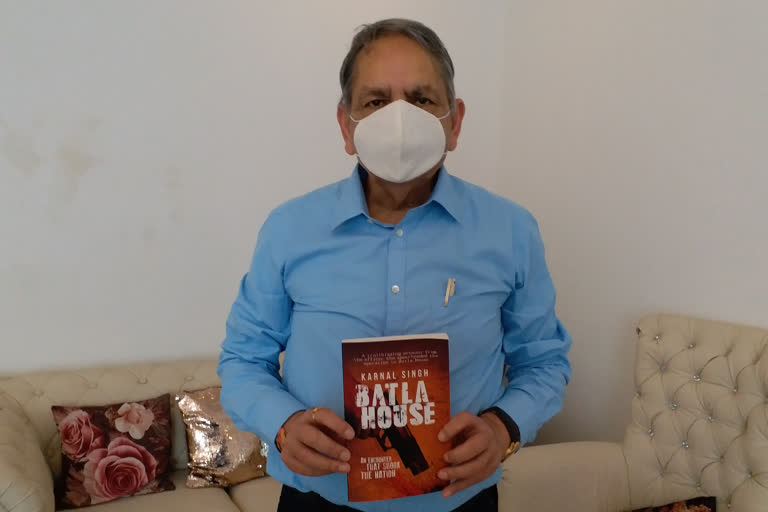New Delhi: Underlining that his main aim of writing a book on India's most controversial encounter in Batla House was to bring the truth out, former chief of the Enforcement Directorate (ED) Karnal Singh, who was the Special Cell Joint Commissioner when the encounter took place, said: "Basically, I wanted the people to know how hard and in what circumstances Special Cell personnel work".
Talking exclusively to ETV Bharat here, the retired police officer said his book - "Batla House" talks about everything about the encounter that took place on September 19, 2008, in the capital city's Jamia Nagar.
In the encounter, which shook the nation, two Indian Mujahideen (IM) terrorists and an encounter specialist and Inspector Mohan Chand Sharma also killed.
Recounting the incident Singh, the then Special Cell Joint Commissioner, said intelligence agencies had shared the input with the Delhi Police and it was Mohan Chand Sharma who developed the information which led to tracking the terrorists to Batla House.
Talking about why and the controversy over the encounter erupted, the retired police officer said people with vested interest some activists are always there to question the job done by the police.
"Whatever was being said or written about it was wrong but we had instructions not to share much information about it with media as it could have affected the investigation," he said, adding that theories against the police that were doing rounds were demolished "as we presented evidence".
The book talks about a chain of events and how the information collected locally helped in creating a minute-by-minute account of terrorists' activities, which finally led to the encounter.
He said allegations and theories against the Delhi Police concerning the encounter were demolished one after the other as we had evidence.
The retired police officer said that Kapil Sibal, who was a union minister then, wanted to discuss the issues related to the encounter and inform the government about the truth behind the encounter, which was being criticized by many.
"The minister asked me to explain the various issues that were raised by politicians and the media and I shared all the information that was available with the police about the encounter", he said.
"Sibal seemed convinced of the genuineness of the encounter and he took my number as he wanted it to discuss with the then Prime Minister Manmohan Singh. Later, he rang me to confirm that he had conveyed his point of view about it to the PM," the police officer recounted.
Also read: Govt not to give details of Kerala gold case in Parliament
He said two teams were formed and the Special Cell personnel were able to pull it well despite all the pressure.
The retired police officer also very fondly remembered Inspector Mohan Chand Sharma, who had got killed during the encounter, saying he was a bright man and knew his work well.
"He was a dedicated policeman, who never let his personal problems or issues affect his work," Singh said, adding that Sharma's son was highly unwell but he did not go on leave and continued with work.
"A very professional man, who was highly dedicated to his duty," said Singh.
On being asked why he took so long to write a book on the incident, Singh said, he started writing the book only after getting retired as he could not have done so while working.
Read: Rajnath likely to make statement in Parliament on India-China border row



